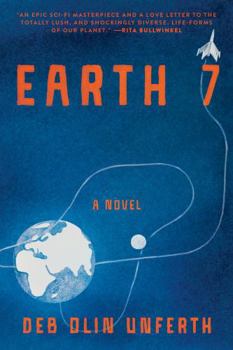Earth 7
An end-of-the-world love story, an epic full of pathos and humor, asking what can be saved of our planet
Well, that's about it for the story of planet Earth, poor Earth, reduced to not much more than a piece of burnt coal. But, as Deb Olin Unferth shows in her latest electrifying novel, life and love persist, even in the most unexpected, inhospitable places.
Format:Hardcover
Language:English
ISBN:1644453940
ISBN13:9781644453940
Release Date:June 2026
Publisher:Graywolf Press
Length:240 Pages
Weight:1.00 lbs.
Dimensions:1.0" x 5.5" x 8.3"
Customer Reviews
0 rating





